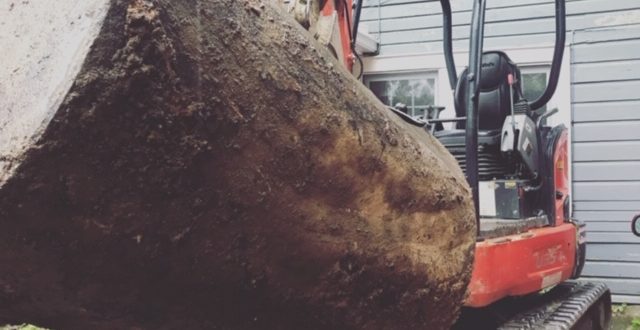Oil Tank Removal in Westchester County
Do you know the importance of removing an oil tank? In recent years, many alternative forms of heating your home or business have become more affordable, especially compared to oil heat. If you have converted to an alternative heat source, the oil tank should be removed, in fact many municipalities require it. An out of service tank can be a disaster waiting to happen. In Westchester County the most common forms of heat are heating oil and natural gas, with some people using propane, geothermal and heat pumps. If you are still using an oil fired system, underground tanks should be removed and replaced with aboveground oil tanks. Aboveground tanks can be easily monitored and inspected. If a leak develops you can take corrective action before too much damage is done.
Removing Out of Service Oil Tanks
An out of service heating oil tank, above or underground, can corrode over the years. The average life span of a tank is 25-30 years, depending on the make and model. Corrosion can form pinholes causing the remaining oil to leak out. This is a slow process and can go unnoticed. In fact when an underground oil tank leaks there is almost no way of knowing, grass and other landscaping is rarely impacted due to the depth of oil leaking from the bottom of the tank (most contamination is found 6-8 feet below ground), These leaks can result in costly clean ups. Removing heating oil tanks prior to a leak will save you thousands of dollars.
Replacing Oil Tanks Currently in use
For the many people who still rely on oil heat to heat their home, it may be time to replace your tank. If you have an underground oil tank, it is likely original to when the house was built or started using oil. If you currently own the home but don’t know the history of the oil tank, your local building department may have records on file. If you can’t find anything, assume your tank is old and should be replaced. Most commonly people install oil tanks above ground or convert to an alternative heat source like natural gas, electric or geo thermal.
If you have an above ground tank it could be a replacement of a previous underground tank. You should periodically inspect the tank for corrosion or signs of a leak. Replacing an above ground tank with a new one is a fairly simple process, for trained professionals.
Remediating a Leaky Tank in Westchester County
Remember, if any of the leakages occur, it will impact the soil, and potentially groundwater. If the tank is above ground, and goes unnoticed, the oil can leak onto the floor, then soak though and into the soil below. After all, even a cement floor is permeable. If the heating oil tank is below ground, the oil can saturate the surrounding soil and potential the ground water. In any case, anything impacted by the heating oil will need to be remediated to meet the guideline of the New York State Department of Environmental Conservation (NYSDEC). In some cases, homeowner’s insurance policies may cover some of the cost. The fear of a costly clean up should not prevent you from taking action. The longer a leak continues the higher the costs can be.
In Westchester (and Putnam) County, people have been removing old oil tank by hiring skilled professionals. It is important to make sure your contractor has the necessary permits, knowledge and licenses to perform any work regarding and oil tank.

